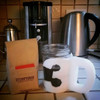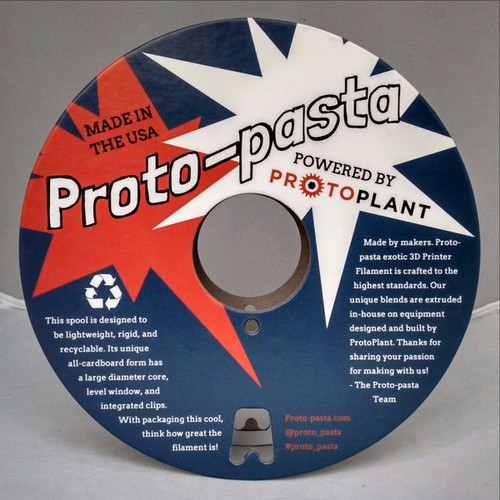|
Product Description
500 G of 1.75mm Proto-Pasta High Temperature Resistant Annealable PLA 3D Printing Fialment. Proto-pasta's High Temp PLA v2.0 is everything the original kickstarted version should have been. This new formulation is higher performing, more obviously heat treatable, and lower cost. This tough PLA prints with ease but has a potential Heat Deflection Temperature (HDT) of as much as 140C (285F) depending on post-processing. This means parts retain more stiffness and form at higher temperatures (no warping on your sunny car dashboard). For maximum performance, your prints should be heat treated (i.e. crystallized) in an oven until you see a change from translucent to opaque. Yes, there is an obvious visual change indicating the improved performance! We had good luck in a lab oven at 110C (230F) for an hour or less. We recommend leaving the supports on your parts, placing them on a non-radiating surface (like glass, ceramic, or composite), and letting them cool in the oven to minimize distortion. Parts can be baked at a lower temperature (though must be above 60C for any change to occur) for a longer time with less risk of unwanted deformation. No abrasive fillers so expect normal wear with standard nozzles.
In our experience, good results were achieved using standard PLA parameters with standard build surface preparation (blue tape, glue stick, or BuildTak). No heated bed required. Some shrinkage may occur in the annealing process, so dimension critical parts may need to be scaled as much as 2.5% to compensate.











